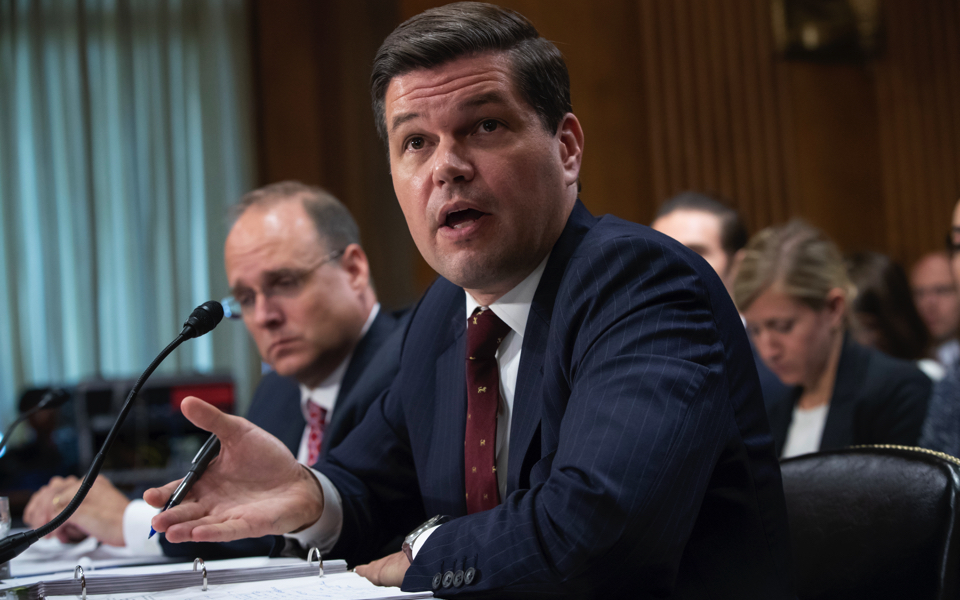US policy toward Greece and Cyprus: The need for an institutional mind-set

When it takes effect on February 15, Assistant Secretary of State for European and Eurasian Affairs Wess Mitchell’s resignation will create a significant vacancy at the US Department of State. He is responsible for America’s relations with 50 countries in Europe and Eurasia, and with NATO, the European Union and the Organization for Security and Cooperation in Europe (OSCE).
Given the importance of US relations with Europe and these international bodies, it is critical for the administration of Donald Trump to address the vacancy immediately and for the United States Senate to confirm a nominee as soon as possible amid an already crammed agenda.
For Greek-American community advocates who are proponents of strong US relations with Greece and Cyprus, Mitchell’s resignation was met with rightful disappointment. Mitchell was a breath of fresh air for those of us who have been working with the State Department on the community’s policy positions. He understood the changing dynamic in the Eastern Mediterranean, and, as such, recognized and supported the Eastern Mediterranean Alliance that has been strengthening between Greece, Cyprus and Israel since late 2010.
Under his watch, Mitchell affirmed Greece’s place as a stable and reliable democracy and oversaw the first-ever US-Greece Strategic Dialogue in December. He called Greece a “fantastic ally” and recognized Greece’s contributions to NATO and US operations, in an interview with Kathimerini.
On Cyprus, Mitchell affirmed the strategic relationship between the United States and Cyprus and security cooperation between the two countries strengthened with the signing of a statement of intent in November. He also clearly stated the United States’ support for the Republic of Cyprus in its right to develop natural resources including in its exclusive economic zone.
However, Mitchell’s departure should also be a signal to our community that we cannot rely or depend on one government official for the successful implementation of our policy positions. Ultimately, Washington is a transient city and these public officials come and go.
The successful progress achieved during Mitchell’s tenure to enhance US relations with Greece and Cyprus cannot be lost. Instead, my belief is our policy positions, and our messaging, must become institutionalized in the State Department and on Capitol Hill. Greece and Cyprus as strong, dependable and loyal frontline democratic states must become the standard and the norm in Washington.
This fact must become deep-rooted in foreign policy circles so that no matter who is appointed assistant secretary for Europe and Eurasia, or who is named chair and ranking member of a relevant congressional committee, the message and policy is institutionalized.
After all, such a standard does exist for Turkey. Although Mitchell recognized Turkey’s wayward foreign policy direction, he also stated the following to Kathimerini in December 2018: “I would acknowledge that the US-Turkish relation is vexing but crucial. The role that Turkey plays in the Middle East in supporting our efforts against DAESH and the placement of Incirlik, our law enforcement cooperation as a NATO ally. It’s really indispensable.”
Turkey is indispensable? Really? Regardless of how Turkey has treated US citizens, soldiers and embassy employees, and regardless of Turkey’s S-400 purchase or how it cozies up to Iran or Russia, in the end, Turkey is “indispensable.”
Nobody in DC circles wants to be the one who loses Turkey, Mitchell included. This is an institutional mind-set in Washington. It must change. Instead, how about no one should be “the one” who loses Greece or Cyprus?
Nick Larigakis is president and COO of the American Hellenic Institute.





